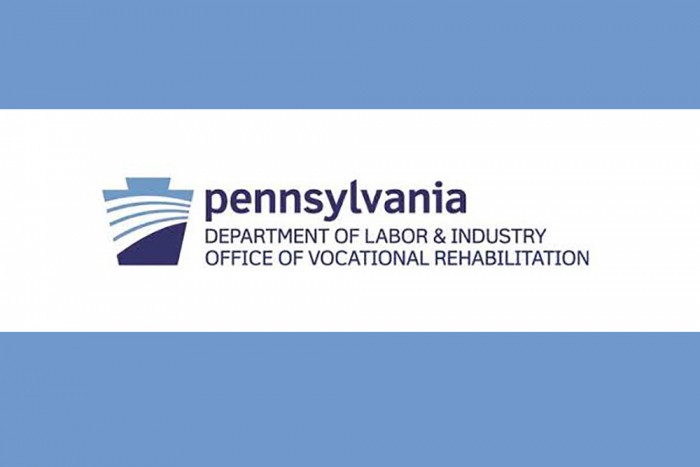ODP Announcement 20-003 contains the Quality Assessment and Improvement (QA&I) Annual Statewide Report for Cycle 1 Year 2, FY 2018-2019 that provides a summary and evaluation of the results of QA&I reviews of Administrative Entities (County Programs), Supports Coordination Organizations (SCOs), and Service Providers during the Cycle 1, Year 2 (C1Y2) evaluation period. This Annual Statewide Report is sorted into geographic regions across the commonwealth and discusses successes and opportunities for systemic quality improvement discovered during QA&I reviews.
Recommendations are included for several areas:
Quality Focus Area Recommendations
ODP commends the efforts of all entities to develop QM Plans and Action Plans in alignment with ODP’s Mission, Vision, and Values, and to use a data-based approach to identify priorities for quality improvement. Specific opportunities for improvement in the area of improving quality include:
- All are encouraged to align QM Plan Goals and Desired Outcomes with ODP’s Mission, Vision, and Values;
- ODP will continue working with AEs and providers to analyze provider performance in developing QM Plans that reflect ODP’s Mission, Vision, and Values, reviewing and evaluating performance data in selecting priorities for QM plans, and analyzing and revising QM Plans at least every three years, then develop strategies for improvement in all three areas; and
- AEs are reminded of the requirement for at least one member of the QA&I Provider Review Team to become QM Certified, and to ensure that the current ODP QM Certified staff recertify every two years.
Employment Focus Area Recommendations
ODP commends AEs, SCOs, and Providers for their demonstrated efforts to promote Employment First and support individuals to obtain and sustain integrated employment in their communities and encourages these efforts to continue. Opportunities for improvement include:
- ODP encourages Small Group Employment & Transitional Work Providers to develop policies supporting individuals to transition to CIE;
- All SCOs are encouraged to designate Employment Leads to promote and coordinate Employment First efforts within each entity and across stakeholders;
- SCs are encouraged to continue to identify individuals’ interests and goals related to employment and ensure ISPs reflect person-centered steps to achieve these interests and goals;
- Providers should ensure individuals are supported in obtaining employment through job interviewing; and
- ODP encourages providers to analyze their performance in ensuring fading plans are developed and implemented for individuals receiving ongoing job coaching and support, then strategize for improvement and track progress.
Communication Focus Area Recommendations
Results in the Communication Focus Area indicate strength in providing financial support to address communication needs where warranted and in offering communication support to individuals in need of assistance when receiving SC services. Opportunities for improvement also exist, and include:
- ODP will continue to work with providers to analyze provider performance in maintaining staff or available contractors who are certified to communicate with people who are deaf or hard of hearing, then strategize for improvement and tracking progress;
- When a need for communication assistance is identified, SCs should explore options for communication assistance with individuals when appropriate and support individuals to choose;
- Providers are encouraged to continue to ensure staff are trained on each individual’s communication plan and/or formal communication system; and
- Providers should ensure that individuals’ progress notes related to communication outcomes include progress measured on one or more of the communication indicators established.
Recommendations on Person-Centered Service Planning and Delivery
ODP recognizes AEs, SCOs, and providers for consistent efforts to include individuals and people important to them in developing ISPs, ensuring all assessed needs are addressed in ISPs, and updating ISPs in a timely manner. Recommendations for improvement in the area of Person-Centered Service Planning and Delivery include:
- All SCOs should continue to ensure risk mitigation strategies are incorporated into ISPs when risks are identified to support individuals’ health and safety;
- ODP will work with SCOs to focus efforts on including people of the individual’s choice in the ISP process, improving monitoring of service delivery at the required frequency, and ensuring that justification of services not being provided as authorized is documented; and
- AEs and SCOs should continue to work collaboratively to ensure ISPs are approved within 365 days of prior Annual ISP.
Recommendations on Self-Direction, Choice, and Control
ODP incorporated exploratory questions in order to track performance and encourage providers to continue to develop and implement policies that ensure individual rights are respected. Providers should review the use of independent living technology or remote monitoring and follow up to establish and implement policies ensuring the applicable consent forms are obtained and on file.
Recommendations on Community Participation
ODP commends AEs and SCOs for initiating conversations with individuals about community activities of their choice, including necessary supports for those activities in ISPs, working to ensure the same degree of community access and choice for individuals who are served as others without a disability enjoy, and monitoring individuals’ experience to ensure community participation occurs.
- ODP encourages stakeholders to ensure that community activities are incorporated into person-centered ISPs for all individuals.
- SCOs should ensure the individual monitoring tool is used to record if the individual, who is receiving community participation supports, is engaged in community activities aligned with their preferences at the rate identified in their ISPs and in accordance with the waiver.
Recommendations on Individuals’ Wellness Supports
ODP recognizes AEs, SCOs, and providers for their efforts to promote wellness and to respond to opportunities for improvement in this area, which include:
- Providers should identify resources that support wellness and share the information with individuals and families;
- Providers of residential or in-home community support services should ensure that 100% of individuals complete all health care appointments, screenings, and follow-up as prescribed; and
- SCOs should review results for addressing health care needs and investigate and close any gaps to ensure continuous improvement.
Recommendations on Health and Safety
ODP encourages providers to continue efforts to ensure all reportable incidents are entered into EIM, follow-up on corrective actions, and review and analyze incidents at least quarterly. Opportunities for improvement in the area of Health and Safety remain and include:
- ODP will continue to analyze SCO performance in assuring all individuals receive information about how to identify and report abuse, neglect, and exploitation and know the steps to take to protect themselves;
- ODP will continue its efforts to support providers to finalize incidents within 30 days by monitoring and evaluating ongoing provider performance, implementing information system improvements that facilitate the process, and updating incident management policies and practices;
- SCOs should review their performance data, practices, and procedures for following up on corrective actions, then develop and implement strategies for improvement using QM Plans and Action Plans;
- Providers should ensure the incident management peer review process is completed and documented and QM Plans and Action Plans should be implemented when warranted.
- All AEs should ensure the HRC has a protocol in place that includes all ODP-required elements. The HRC is to:
- Conduct a systemic review to ensure that the use of restraints and restrictive interventions is appropriate and necessary;
- Verify strategies exist and are achieved to reduce or eliminate the need for the use of a restraint or restrictive intervention;
- Conduct technical assistance to provider agencies in developing positive intervention or strategy alternatives to eliminate or reduce the need for restraint and restrictive procedures; and
- Analyze systemic concerns including a review of policies, procedures, trends and patterns, individual situations, and plans that authorize the use of interventions that have the potential to impact an individual’s rights.
Recommendations on Supporting People with Complex Needs
SCOs should continue to ensure they have processes in place to identify criteria triggers for higher frequency monitoring for individuals and plans to address individuals’ complex needs.
Recommendations on Developing and Supporting Qualified Staff
- Providers should review their performance to ensure all staff receive all required training, including in incident management, Emergency Disaster Response plan, and CPS;
- Providers should ensure staff receive training on the needs of individuals they support, prior to service delivery, as identified in their approved ISPs; and
- SCOs should review their performance and ensure mandatory training requirements are met annually.
ODP is hosting a webinar to review the findings with stakeholders on Thursday, February 27, 2020 from 2:30 pm to 3:30 pm. Participants may register at the following link: Quality Assessment and Improvement (QA&I) Annual Comprehensive Statewide Report Cycle 1 Year 2 (C1Y2).














